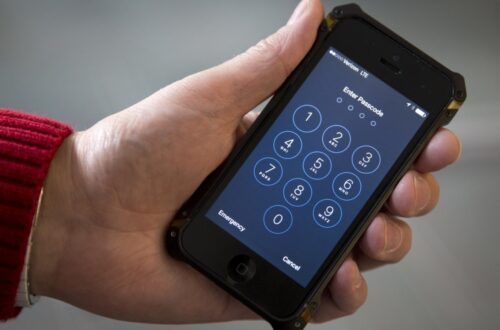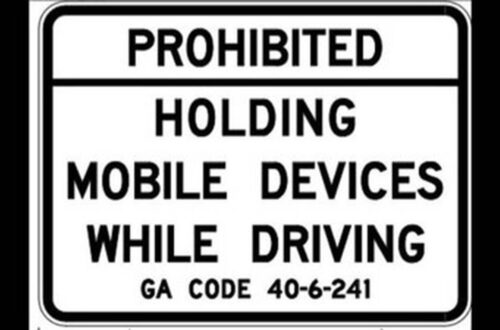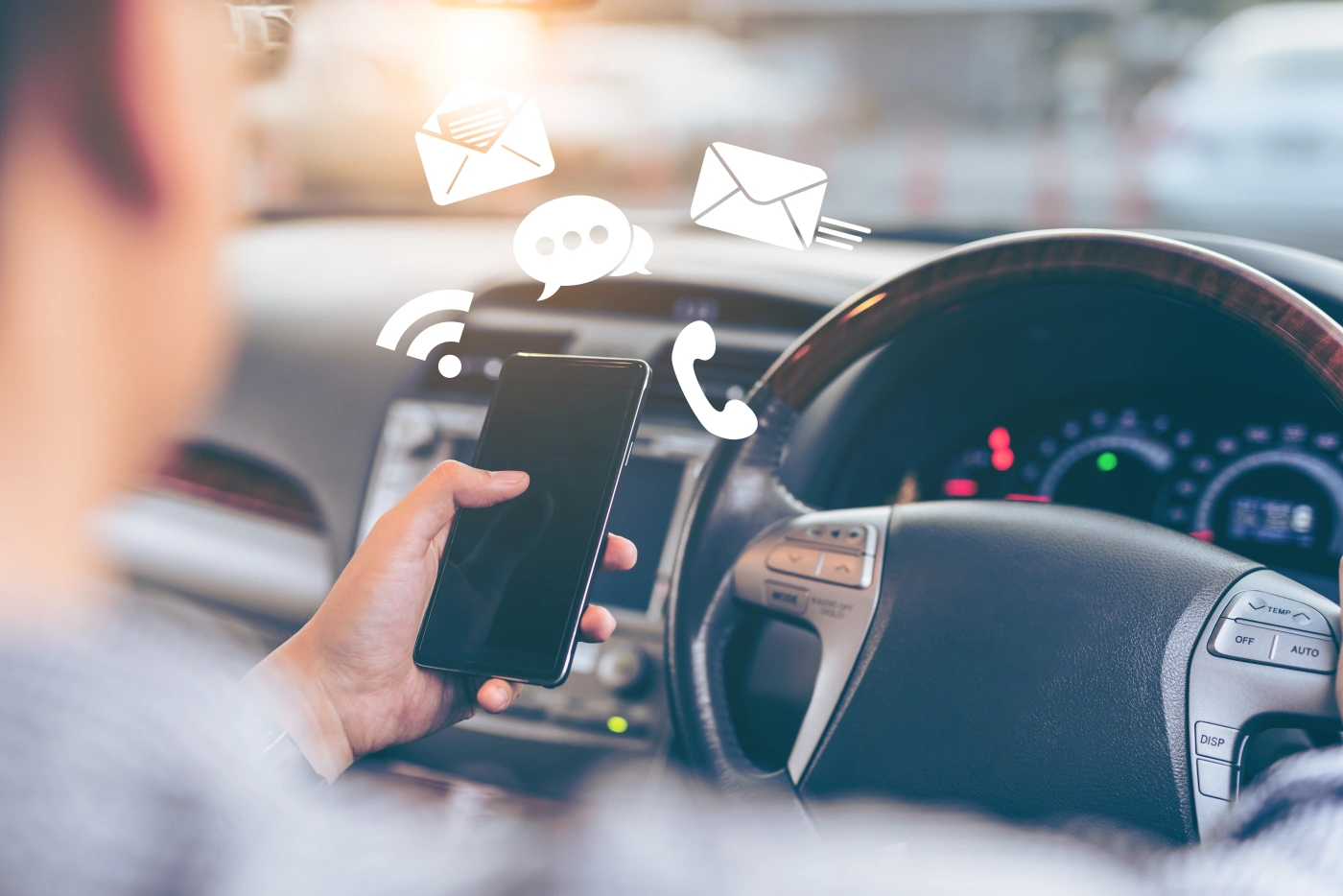Texting while driving is vital because it diverts your focus, causing cognitive distractions. Your ability to react promptly is compromised, increasing the likelihood of accidents due to delayed responses. Ensuring situational awareness is essential as distractions can impair decision-making skills, posing risks to your safety on the road. Stay vigilant and prioritize attentive driving to avoid potential hazards. The impact of texting while driving goes beyond just distractions; it profoundly affects your ability to drive safely.
Cognitive Distraction
Texting while driving causes a significant cognitive distraction that impairs your ability to focus on the road. When you engage in texting, your brain switches between the task of driving and the task of composing or reading messages. This constant shifting of attention divides your cognitive resources, making it challenging to concentrate fully on the road ahead. As a result, you may miss important visual and auditory cues, such as traffic signals, pedestrians crossing the street, or the sound of honking horns.
The cognitive distraction induced by texting while driving can lead to a phenomenon known as 'inattention blindness.' This means that even though your eyes are on the road, your brain fails to process all the information around you. Your mind becomes preoccupied with the text conversation, causing you to overlook potential hazards, increasing the risk of accidents. Remember, your safety and the safety of others on the road should always take precedence over sending or responding to text messages.
Delayed Reaction Time
With a delayed reaction time while driving due to distractions like texting, your ability to respond quickly to unexpected situations on the road is compromised. This delay can have severe consequences, putting you and others at risk. Imagine:
- A child suddenly running into the street chasing a ball.
- A car abruptly swerving in front of you without signaling.
- A pedestrian stepping off the curb unexpectedly.
- A sudden obstacle appearing on the road due to construction or an accident.
In these scenarios, every split second counts. When your reaction time is delayed because you are focused on your phone instead of the road, the potential for a collision or other dangerous outcome increases significantly. Stay alert and focused while driving to make sure you can react promptly to anything that may come your way.
Reduced Situational Awareness
When distractions like texting lead to delayed reaction times while driving, your ability to maintain situational awareness on the road is greatly diminished. Situational awareness is vital for safe driving as it involves being fully aware of your surroundings, anticipating potential hazards, and making quick decisions to avoid accidents. However, when you are distracted by texting, your focus shifts away from the road, causing you to miss important visual and auditory cues.
Reduced situational awareness means that you may fail to notice a car suddenly braking in front of you, a pedestrian crossing the street, or a road sign indicating a detour. This lack of awareness increases the likelihood of being involved in a dangerous situation. Without being fully cognizant of what is happening around you, your reaction time to unexpected events becomes slower, putting yourself and others at risk.
To stay safe on the road, it is essential to prioritize driving and minimize distractions like texting. By doing so, you can enhance your situational awareness and make informed decisions that promote road safety.
Increased Risk of Accidents
Maintaining focus on the road is essential to avoid the increased risk of accidents associated with texting while driving. When you engage in texting behind the wheel, you greatly jeopardize your safety as well as the safety of others on the road. The following points illustrate the heightened risk of accidents that arises from this dangerous behavior:
- Delayed Reaction Times: Your ability to react quickly to sudden changes in traffic conditions is compromised.
- Increased Likelihood of Collisions: By diverting your attention to your phone, you are more likely to collide with other vehicles or objects.
- Failure to Observe Traffic Signals: Texting can cause you to miss important traffic signals, increasing the chances of accidents at intersections.
- Inability to Maintain Lane Position: Your swerving or drifting between lanes due to texting can lead to sideswiping or run-off-road accidents.
Impaired Decision Making
Engaging in texting while driving impairs your decision-making abilities, putting yourself and others at significant risk on the road. When you divert your attention to read or send a text, your brain is not fully focused on the task of driving. This split focus leads to delayed reactions in critical situations, such as sudden stops or unexpected obstacles. Your ability to assess and respond to dangers on the road is compromised, increasing the likelihood of accidents.
Moreover, texting while driving creates a vital sense of confidence in your multitasking skills. You may believe that you can quickly glance at your phone and still maintain control of the vehicle. However, studies have shown that the human brain is not capable of effectively handling multiple complex tasks simultaneously. By engaging in texting while driving, you are overestimating your cognitive abilities and underestimating the potential consequences of your actions.
In essence, impaired decision-making while texting behind the wheel jeopardizes your safety and that of others on the road. It is essential to prioritize focused and attentive driving to prevent unnecessary risks and guarantee a safer driving environment for everyone.
Legal Consequences
Prioritizing safety and refraining from texting while driving is crucial to avoid the severe legal consequences that can have long-lasting impacts on your life. When you partake in this hazardous behavior, you not only put your safety and that of others on the road at risk but also face the possibility of the following penalties:
- Fines: You could be fined a substantial amount of money if caught texting while driving.
- License Suspension: Your driver's license may be revoked, limiting your ability to drive legally.
- Elevated Insurance Rates: Receiving a ticket for texting while driving can lead to an increase in your insurance premiums.
- Legal Charges: In some instances, texting while driving can result in criminal charges, resulting in a permanent mark on your record.
These repercussions can have widespread effects on various aspects of your life, affecting your finances, liberty, and future opportunities. Prioritizing safety and refraining from texting while driving is crucial in order to avoid these significant legal repercussions.
Impact on Pedestrians
Pedestrians are especially vulnerable to the dangers posed by texting while driving, putting their safety at risk on the roads. When drivers are distracted by texting, they are less likely to notice pedestrians crossing the street or walking along the roadside. This lack of attention can lead to severe accidents, causing serious injuries or even fatalities to pedestrians.
As a pedestrian, you rely on drivers to follow traffic rules and be attentive while on the road. However, when drivers engage in texting, their reaction times are greatly reduced, making it harder for them to avoid accidents involving pedestrians. This means that even if you are careful while walking, you are still at risk of being hit by a distracted driver.
It is crucial for both drivers and pedestrians to be aware of the risks associated with texting while driving. As a pedestrian, staying alert and making eye contact with drivers can help increase your safety on the roads. Remember, your life is too valuable to be endangered by someone's text message.
Frequently Asked Questions
Can Using Voice-To-Text Features While Driving Reduce the Dangers of Texting Behind the Wheel?
Using voice-to-text features while driving can help reduce the dangers of texting behind the wheel. By speaking your messages instead of typing, you can keep your eyes on the road and focus on driving safely.
How Does the Type of Phone (Smartphone Vs. Basic Phone) Affect the Risks of Texting While Driving?
Using a smartphone while driving increases risks due to its advanced features and distractions. Basic phones offer fewer distractions. Remember to prioritize safety over convenience when choosing a device to use while driving.
Are There Any Specific Age Groups That Are More Likely to Engage in Texting While Driving?
Youths and young adults are more prone to texting while driving, increasing the risk of accidents. It's important to prioritize safety over distractions. Remember, staying focused on the road can save lives.
What Are Some Effective Strategies for Preventing Texting While Driving Among Young Drivers?
To prevent texting while driving among young drivers, set clear rules, lead by example, use apps that block distractions, educate on risks, and encourage open communication. Safety should always be the top priority on the road.
How Does Texting While Driving Compare to Other Forms of Distracted Driving, Such as Eating or Using Gps?
When comparing texting while driving to other distractions like eating or using GPS, remember that texting diverts your eyes, hands, and focus simultaneously. It's uniquely dangerous due to the cognitive, visual, and manual distractions it presents.
Conclusion
So, next time you think about sending that text while driving, remember the dangers it poses. Your cognitive distraction, delayed reaction time, reduced situational awareness, and impaired decision making can lead to increased risk of accidents and legal consequences. Don't forget about the impact it can have on pedestrians too. Stay safe on the road and keep your phone out of reach while driving. It's not worth the risk.


